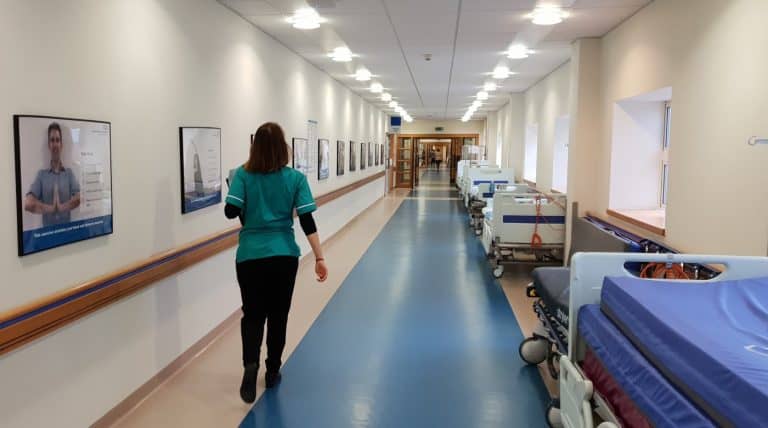Ovarian Cancer – Breakthroughs in Treatment
Ovarian cancer is the fifth most common form of the disease in women in the UK; with 7,000 new cases a year in Britain and 4,000 deaths.
The survival rate following diagnosis is just 29% under current therapies. Poor survival rates for women who suffer from ovarian cancer is due to both late diagnosis as well as a lack of ‘second line’ therapy for patients who relapse. However, there is fresh hope due to a range of new treatments being developed by scientists, some of which are already available through the NHS.
Accurate ways to detect ovarian cancer early could have a great impact on the cure rate. Researchers are testing new ways to screen women for ovarian cancer. Two large studies of screening have been completed in the United States and in the United Kingdom. Both studies looked at using the CA-125 blood test along with ovarian (transvaginal) ultrasound to find ovarian cancer.
The improvements in diagnosis and more accurate testing are explored in our blog on ovarian cancer.
Types of ovarian cancer
The most common type of ovarian cancer is called ‘epithelial ovarian cancer’. About nine out of ten tumours of the ovary diagnosed are epithelial ovarian cancer. This type of cancer means that the cancer started in the surface layer covering the ovary. There are various types of epithelial cancers. Serous epithelial ovarian cancer is the most common type, making up about two thirds of the cases diagnosed.
Around 1 or 2% of ovarian cancers are germ cell cancers. They start from the egg making cells of the ovary.
Stages of ovarian cancer
Doctors use a simple one to four staging system for ovarian cancer.
- Stage one ovarian cancer means that the cancer is only in the ovaries.
- Stage two means that the cancer has grown outside the ovary or ovaries and is growing within the area circled by your hip bones (the pelvis). There may also be cells in the abdomen.
- Stage three cancer of the ovary means the cancer has spread outside the area surrounded by your hip bones (the pelvis) into the abdominal cavity. The cancer may also be stage three if cancer is found in the lymph nodes in your upper abdomen, groin or behind the womb.
- Stage four ovarian cancer means the cancer has spread to other body organs some distance from the ovaries, such as the liver or lungs.
Treatment
The type of treatment that is recommended depends on the type of ovarian cancer, the stage of the cancer and a number of other factors.
The main types of treatment for ovarian cancer are surgery, chemotherapy and radiotherapy.
If the cancer is at an early stage many women may have surgery as the first stage of treatment. Surgery may involve the removal of the ovaries, fallopian tubes, the womb (including the cervix).
During surgery, the surgeon removes as much of the cancer as possible, which is called ‘debulking’.
Once the patient has recovered from surgery, typically chemotherapy is offered.
If the surgeon was able to remove all of the cancer, the aim of chemotherapy is to reduce the risk of the cancer coming back. If the surgeon wasn’t able to remove all of the cancer however, the aim of chemotherapy is to shrink the cancer that has been left behind. Some women may then have further surgery.
If the ovarian cancer is too advanced however, surgery may not be offered as the surgeon may not be able to remove the cancer or the patient may not be well enough to undergo surgery.
If the cancer is very advanced, the surgeon may offer chemotherapy to shrink the cancer as much as possible and to slow it down. Radiotherapy may also be offered to relive the symptoms, depending on where in the body the cancer has spread. However, there is a maximum total dose of radiotherapy you can have to any part of the body.
Currently, around five out of every one hundred women are diagnosed with stage four cancer, and more than 80% of patients diagnosed with stage four cancer will have a recurrence of their disease after their first-line of treatment, and around 5% will survive for five years or more after they are diagnosed with a recurrence of the disease.
However, new breakthroughs in treatment have given fresh hope to those women diagnosed with ovarian cancer and particularly those who have been treated for ovarian cancer which has come back after treatment.
New treatment options for ovarian cancer patients
New Drug
Patients with ovarian cancer have been given a greater chance of survival after it has been decided that a new drug ‘olaparib’, which can extend life for months and even years, should be made available to patients through the NHS.
The Chief Executive of the Ovarian Cancer Action has said “Olaparib is a good example of personalised medicine and the first breakthrough treatment for these women in years.”
What does the new drug do?
The new drug is a type of biological therapy which targets inherited genetic faults. It is specifically for women with a particular gene change. The drug works by blocking a protein from repairing the damaged cancer cells and the cancer cells die. The cancer stops growing or shrinks. The National Institute for Health and Care Excellence, (NICE) has said that the drug should be made available through the NHS to those suffering from ovarian cancer if they have been through three courses of chemotherapy. The drug can be taken as capsules twice a day. The treatment was initially refused NHS funding; however after negotiations with the UK firm that developed the drug it can now be offered.
Type of Intensive chemotherapy
A new type of intensive chemotherapy has proved highly effective in treating women who are very unwell with ovarian cancer. The British Journal of Cancer has recently announced that a pioneering treatment has been successful in 80% of patients whose first-line chemotherapy had failed, compared to less than 15% under current therapies.
Currently women whose tumors have returned have very limited options, with less than half responding to follow up chemotherapy.
Researchers divided women who had relapsed following initial successful chemotherapy treatment and found that the response rates of the two groups of women (who were the least ill), to the new treatment were 92% and 91%. This compares to a response of 50% and 20% to 30% with standard therapies.
Overall 80% of the womens’ tumours’ shrank, and an unprecedented 43% showed a complete response, with all signs of their cancer disappearing.
The new treatment used the drugs, cisplatin and etoposide (which are already used in chemotherapy regimes), much more intensively than usual.
Studies show that the drugs given on a weekly basis, along with stronger drugs, helps to prevent nausea.
Immune-based cancer treatments
Immune-based cancer treatments to ovarian cancer patients are now in development.
In the United States a number of categories of ‘immunotherapies’ for ovarian cancer are in the early-phases of testing, however their successful use in other types of cancers suggests that they may be useful for ovarian cancer as well.
The tests so far show potentially promising treatment which is based on several lines of evidence.
Unfortunately, ovarian cancer is often quite advanced when it is first diagnosed as women may not have any symptoms when the cancer is in the early stages. However, prompt attention to symptoms, leading to early diagnosis and treatment, can cure some patients, for others prompt attention to symptoms can help them live longer and have better control of their symptoms.
In my experience of claims for compensation relating to a delayed diagnosis of cancer, common reasons include:
- Failure to investigate symptoms
- Failure to carry out sufficient tests
- Failure to refer to a specialist, or for testing, when a patient reported symptoms
A delay in diagnosis can lead to catastrophic consequences. A recognition of the symptoms and early detection will dramatically improve the chances of survival.










